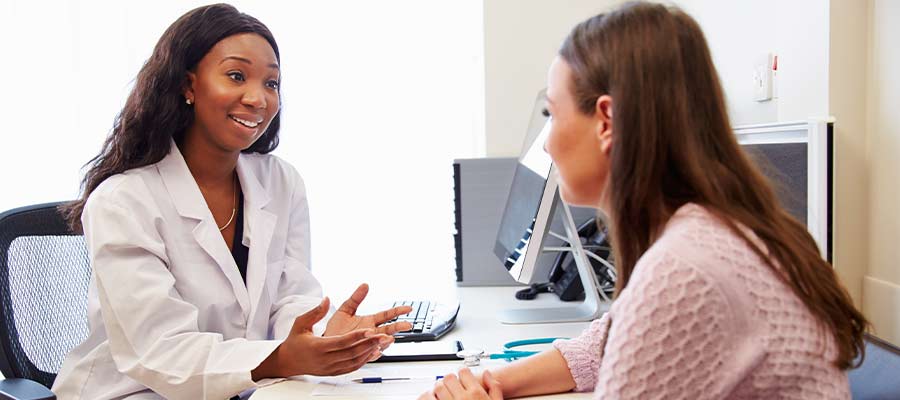Screening for Colorectal Cancer is Essential and Nothing to Fear by Digestive Disease Care
Read our blogs below to learn more about Digestive Disease Care. Interested in our services? Contact us or request a consultation online. We have convenient locations to serve you in Babylon NY, East Setauket NY, Forest Hills NY, Jamaica NY, Jericho NY, Lake Success NY, Melville NY, Mineola NY, Massapequa NY and New Hyde Park NY.


Table of Contents:
Types of colorectal screenings
Colonoscopies—the gold standard
When to get a screening
March is National Colon Cancer Awareness Month, so you may be thinking about your risk. Though colorectal cancer is the third most common cancer in the US, diagnosis rates have dropped over the past decades.
Wondering why? More people are getting screened to detect colon cancer when it’s most treatable, and a simple colonoscopy can even help prevent cancer from starting.
The team of board-certified gastroenterologists at Digestive Disease Care provides patients in Long Island and Queens, New York, with life-saving colorectal cancer screenings to identify precancerous polyps, remove suspicious cells, and cure colon cancer.
There are many types of colorectal screenings, and painless, minimally invasive colonoscopies offer the best protection against colorectal cancers. Guidelines for this essential screening have changed recently, so keep reading to learn more and find out when it’s time to schedule your colorectal screening.
Different types of colorectal cancer screening tests are available, all of which are simple, safe, and essential to your health. Some of the available tests include:
• Virtual colonoscopy: Uses X-rays to take images of your colon and rectum
• Flexible sigmoidoscopy: Like a colonoscopy but for the lower third of the colon
• Fecal occult blood: Detects blood in your stool
• Double-contrast barium enema: Uses a solution and X-ray to look for polyps or tumors
Though different test options are available, they aren’t one size fits all. Each individual has different needs and only a qualified gastrointestinal provider, like one at Digestive Disease Care, can make the right recommendation.
While many people are interested in fecal tests since there is no preparation involved and can be completed at home, these tests are not as accurate as colonoscopies. This is because they detect blood, not cancer, and are not able to identify polyps before they become cancerous.
This means that even if you have a negative fecal test, it doesn’t mean you’re cancer-free. If you do test positive for fecal blood, you will need to have a colonoscopy to check for the cause. The cause could be colon cancer, or another cause like an internal hemorrhoid.
Because of this uncertainty, the team at Digestive Disease Care uses the gold-standard in colon cancer screening to detect this life-threatening disease: colonoscopy.
Colonoscopies are the gold standard for detecting colon cancer and precancerous colon growths, polyps. This test is simple, safe, and effective, and could save your life.
Before the test, you drink a special liquid to clear your colon. This helps your provider better detect polyps and other signs of cancer. At the appointment, you’re given medicine to help you be comfortable during the procedure.
During the colonoscopy, your provider examines the entire colon using a colonoscope, a flexible, thin tube inserted through your anus and rectum. Your large intestines are inflated with air, providing more visibility to the tissues. If your provider finds a polyp or other growth, they remove it using special tools and send it for analysis at a lab.
Though this sounds like an uncomfortable procedure, you don’t feel any pain during the exam or when polyps or tissues are removed. After the colonoscopy, you may feel bloated or gassy for the first hour. You will need a ride home, and by the next day, you’ll be back to normal.
Different risk factors and family history impact when you will need to get a colonoscopy. However, the recommended age for when people with “average risk” should start regular screenings has been put forth by the American Cancer Society. They recently updated their recommendation from 50 years to 45 years, lowering the starting age for colorectal cancer screenings.
Your colorectal cancer risk is assessed using your family and medical history, any symptoms you may be experiencing, and relevant lifestyle factors. If you have a higher risk, your provider may recommend starting screenings earlier than 45.
In general, adults 45-75 years should have regular screenings every 3-10 years. This depends on the result of prior screenings and the type of screening used, as well as any individual risk factors. Past age 75, your provider will individualize how often you get screened.
Learn more about colonoscopies and colorectal screenings and find out when to schedule yours by booking an appointment online or on the phone at the Digestive Disease Care facility nearest you. We have convenient locations to serve you in Babylon NY, East Setauket NY, Forest Hills NY, Jamaica NY, Jericho NY, Lake Success NY, Melville NY, Mineola NY, Massapequa NY and New Hyde Park NY.






